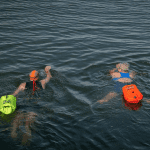
How to prepare for an English Channel relay swim
Meet your pilot and eat crisp butties – Lionel Spittle and David Rock share their top tips for preparing for a relay swim in the English Channel
This August, two teams of four swimmers from the West Midlands are attempting a relay swim of the English Channel – and one of the teams, named Brainwaves, hope to break the World Record for the oldest 4-person mixed relay team while doing so!
In their attempt at their record swim, they are raising money for two charities close to their hearts – the Brain Tumour Charity and Birmingham Children’s Hospital. The teams’ founder, Lionel Spittle, sadly lost his wife to a brain tumour 10 years ago, and team member Caroline Jones’ daughter received “tremendous care” at Birmingham Children’s Hospital while undergoing treatment for Neuromyelitis Optica Spectrum Disorder (NOMSD). The funds raised from their challenge will be split equally between the two charities.
All members of both relay teams are veteran open water swimmers but this is their first time taking on the 21-mile Channel.
We spoke to Lionel Spittle and David Rock, aged 69 and 65 respectively, about how they’re preparing for their challenge, the training that’s involved, and what advice they’d give for anyone else with the English Channel in their sights.
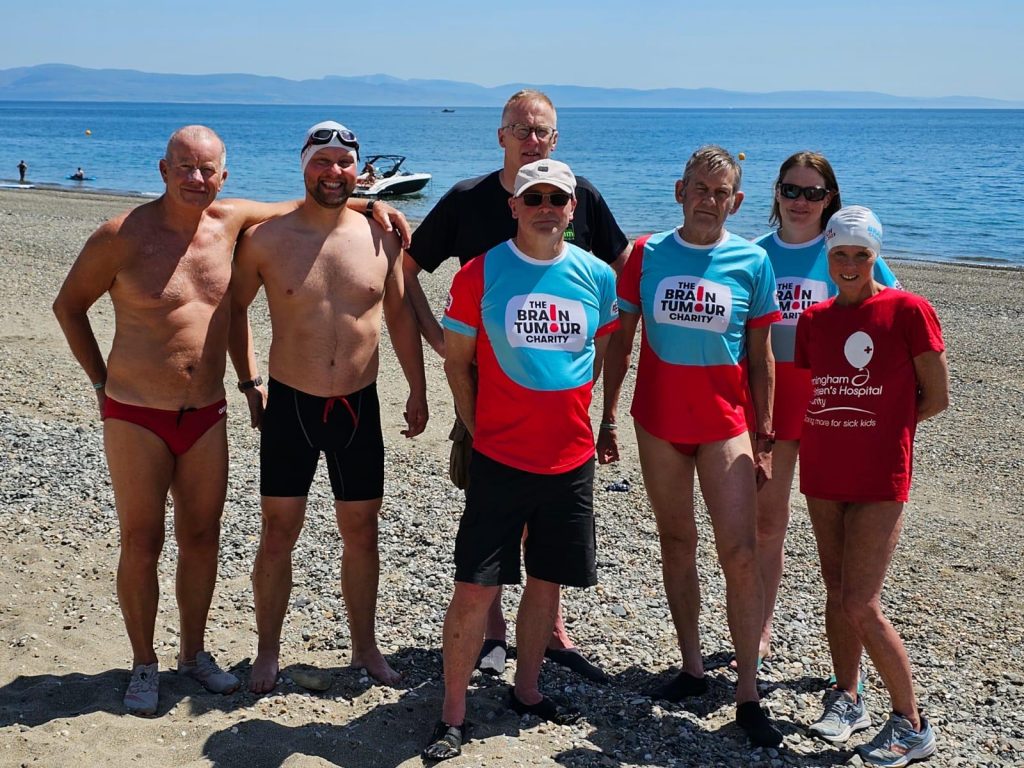
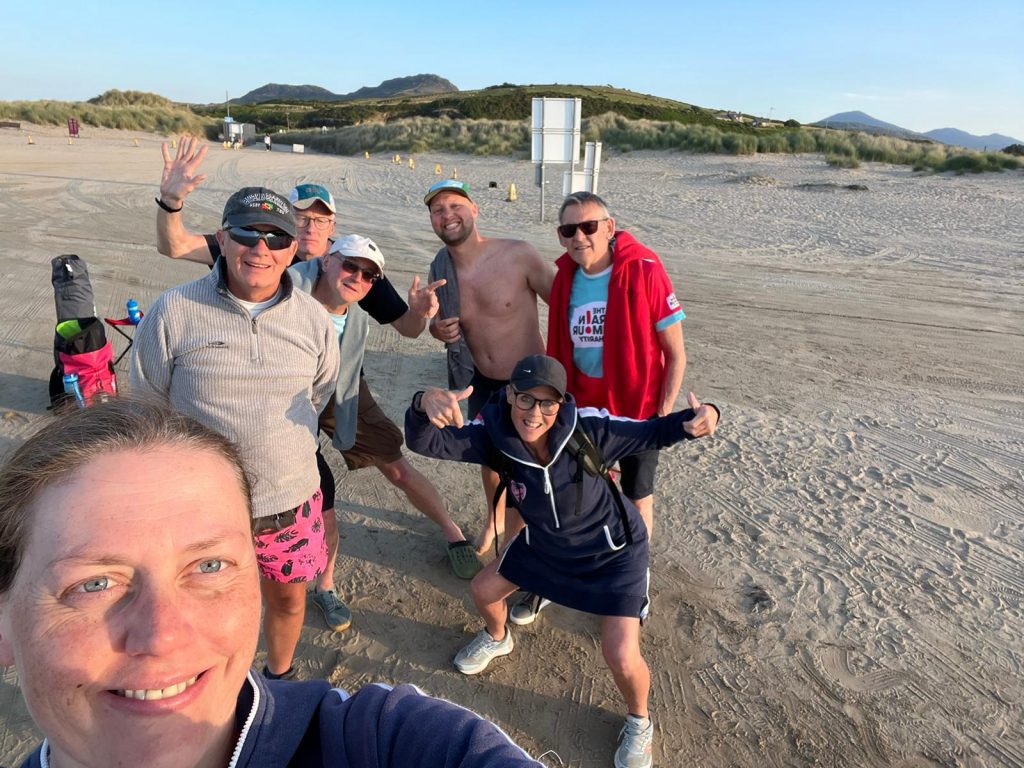
Lionel and David, what has your training involved for your English Channel swim?
We swim in the pool four times a week, about 3.5k each time. We started our outdoor swimming training back in March. Initially, this was to train for our 2-hour qualifying swim, which is in a temperature of 15 degrees or less. Our training was all about building tolerance for that. For our first swim we were in the water for 15 mins, then we gradually increased the duration each time.
Another part of our preparation was to arrange a training weekend in Dover. We used the actual boat that we’ll be chartering for the Channel swim, and we met our pilot. The experience taught us a few valuable lessons.
For example, when we practiced the start of the swim, we were taken close to a beach on the coast of Dover. They stopped the boat and I swam 100m to the beach – the starting point. I was on the beach and the sea was just literally covering my toes. I was told that I would have been disqualified for the actual swim. You have to be seen to be totally clear of the sea before you start. So even though I was on land, it wasn’t deemed clear enough of the water. So that investment in time was well worth it. We had the boat over two mornings and it enabled us to perfect our changeover speed, and learn from any mistakes.
Tell me more about your qualifying swim – what was involved in that?
We did our qualifying swim in a local lake called Chasewater. Our approach to that was to place hot drinks and snacks at the end of the jetty, and to stop for a rest and feed every three laps. I found this very useful because rather thinking ‘Oh God, I’ve got two hours of this cold water’, I was focused on ‘Oh great, I’ve only got two more laps and I get to have a warm drink.’
Is there anything you’re nervous about in regards to your Channel swim?
It’s nothing we can control, but a nightmare scenario would be to get within a mile of the French coast and the tide changes, and we’re stopped. It’s not uncommon for that to happen. We’ve broken the Challenge down, thinking what are the things that we need to train and prepare ourselves for, to put us in the best possible position to complete the swim. That’s all we can do.
Anyone who’s going to attempt something like this has to focus on things that you can control. The things you can’t control – it does no good to worry about them.
In a lot of respects, it’s more of mental challenge rather than a physical challenge because obviously you really are out of your comfort zone, jumping out of a boat in the middle of the Channel. I’ve had panic attacks in cold water before, and I’ve found that one thing that really helps is to have a cold shower every day. That has enabled me to build up my resistance, and to just get in the water and swim. That’s helped enormously, training my body to accept that cold, so you then feel in a better place to carry on.
The camaraderie of doing a relay really helps. There’s that mentality of ‘Well if they’re doing it, I don’t want to be one to let them down.’ That motivates you more, even if you’ve got a bit of discomfort. And to know we’re doing it for these two great causes – the Brain Tumour Charity and the Children’s Hospital, it makes us think that our discomfort is nothing compared to those we’re raising the money for.
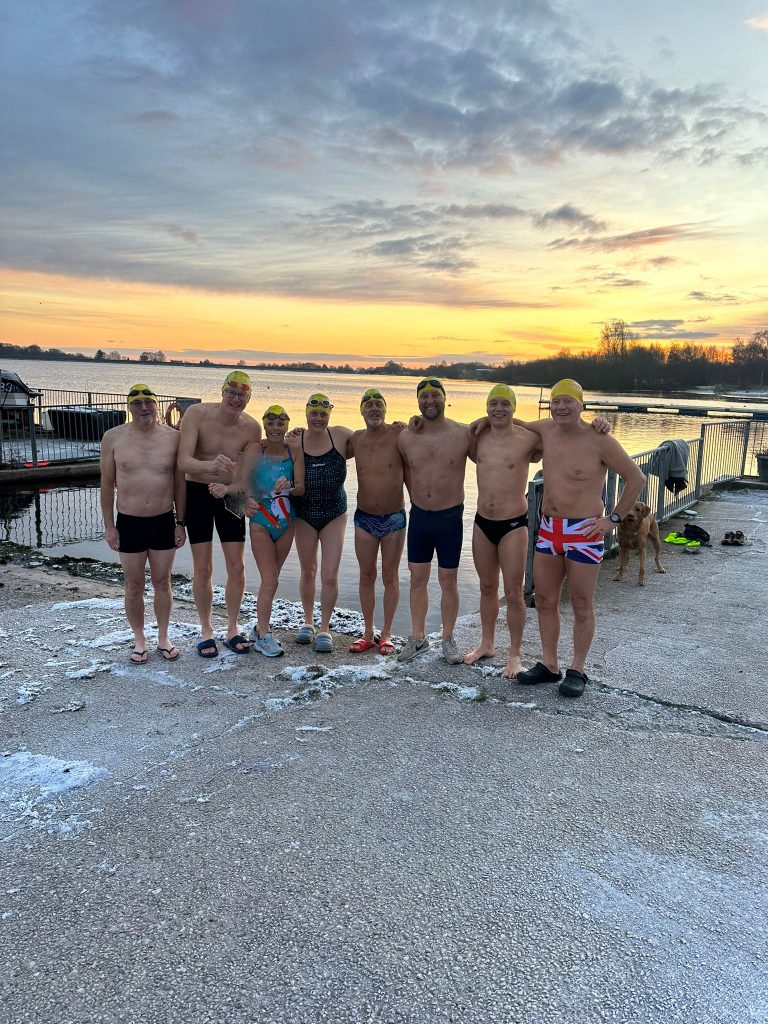
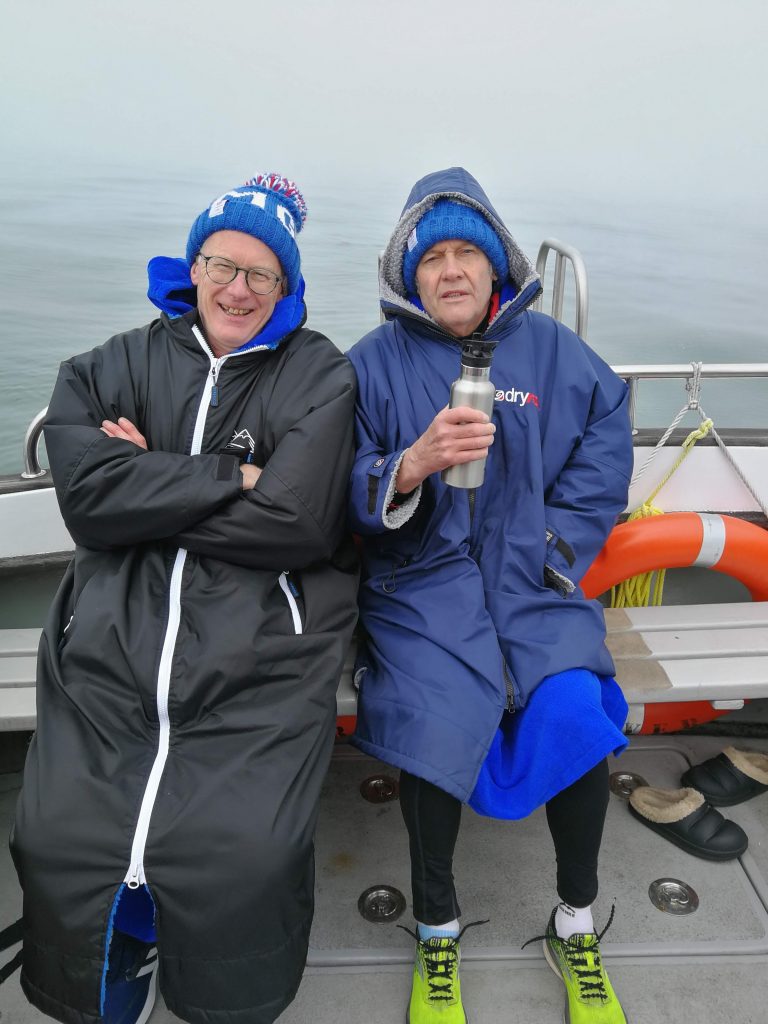
What do you eat during your training?
Obviously there are the energy gels and this-that-and-the-other, but we’ve found the best thing is to eat as normal and as best you can. And to mix your marketed athletic nutrition with good old jam butty or chicken sandwich. When we did the training weekend, I got out of the water after and hour and someone gave me a crisp sandwich. I tell you, I would have paid a million pounds for that crisp sandwich. You’ve got to have a bit of normality.
Are there any further tips you’d like to share with readers thinking of doing a Channel relay swim?
Anyone’s who attempting a Channel swim, I highly recommend getting to meet your pilot beforehand and have a couple of days training with them. Ours is Stuart and his boat is the Sea Leopard. He’s full of knowledge and experience – we learned so much from him, particularly about changeover speed during a relay and not running over your time, which could get you disqualified. Stuart was able to have a look at us, gauge our swim and he gave us a rough estimate that we’d complete our Channel relay in 13-14 hours. It’s good to have that in our minds.
Also – try to make the experience fun. It’s certainly given us many happy memories.
Relay teams Brainwaves and BCH plan to do their English Channel swim between 15 and 22 August 2023. We’ll catch up with them after their swim to find out how they got on!
Meanwhile, please donate whatever you can to their chosen causes – the Brain Tumour Charity and Birmingham Children’s Hospital – via their fundraising page: givewheel.com/fundraising/401/english-channel-swim-august-2023/
Sign up to our newsletter for more guidance and training advice for swimming challenges






